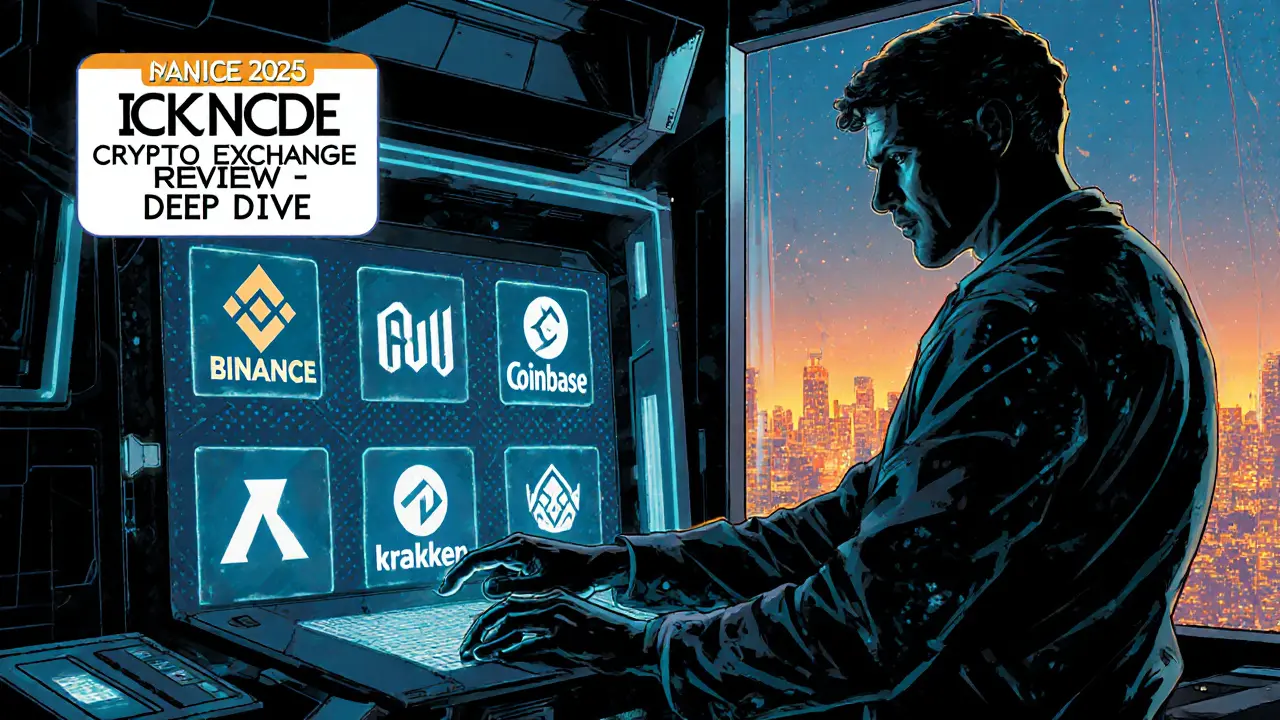ICNCDE Crypto Exchange Review - 2025 Deep Dive
A practical 2025 review of the new ICNCDE crypto exchange, covering security, fees, liquidity, features, and how it stacks up against major platforms.
When talking about ICNCDE security, a framework that blends identity verification, exchange safeguards, and regulatory alignment to protect digital assets. Also known as Integrated Crypto Network Compliance & Defense, it encompasses KYC compliance, the process of confirming a user’s real‑world identity before granting access to financial services and crypto exchange security, the set of technical and operational controls that keep trading platforms safe from hacks and fraud. In practice, regulatory compliance, adhering to local and international laws such as AML and FATF guidance influences how each layer of ICNCDE security is built and monitored.
KYC compliance isn’t just a checkbox; it’s a proactive shield that cuts down on money‑laundering, fraud, and counterfeit accounts. By verifying passports, utility bills, or biometric data, platforms can flag suspicious activity before it spreads. That early detection directly supports the broader ICNCDE security framework, turning a legal duty into a strategic advantage. For traders, this means fewer frozen assets, smoother withdrawals, and a stronger trust signal when choosing an exchange.
Beyond fraud prevention, solid KYC processes also lower regulatory risk. When a jurisdiction tightens its rules—think Japan’s FSA or the UAE’s FATF exit—platforms with robust KYC are already positioned to meet new thresholds without costly overhauls. In short, a well‑implemented KYC program feeds the same data pipelines that power real‑time monitoring, transaction scoring, and automated reporting, all key ingredients of ICNCDE security.
Crypto exchange security is the next pillar that dovetails with KYC. Even the most thorough identity checks can’t protect users if the underlying platform is vulnerable. Secure coding practices, cold‑storage of the majority of funds, and multi‑factor authentication create a hard‑shell around the digital assets. When an exchange integrates these safeguards, the whole ICNCDE security ecosystem benefits—users enjoy quicker onboarding thanks to KYC, while their funds stay locked behind layers of technical defense.
Regulatory compliance adds the final layer of assurance. Global standards like the FATF Recommendations, the EU’s MiCA framework, or local licensing regimes dictate how KYC data must be stored, how transaction logs are retained, and what audit trails are required. By aligning with these rules, a platform not only avoids fines—like the $34 billion threat faced by Upbit—but also builds credibility that can attract institutional investors. This regulatory backbone strengthens the trust factor embedded in ICNCDE security.
Another emerging piece of the puzzle is blockchain voting, a newer method for decentralized governance that can reinforce security decisions. When token holders vote on protocol upgrades, fee structures, or emergency patches, the community directly shapes the security posture of a network. This democratic layer complements traditional compliance by adding transparency and collective oversight, two traits that are increasingly demanded by regulators and users alike.
Putting it all together, the ICNCDE security model thrives on three interlocking relationships: ICNCDE security encompasses KYC compliance, ICNCDE security requires robust crypto exchange security, and regulatory compliance influences ICNCDE security. Each component feeds data and controls into the next, creating a feedback loop that makes the system more resilient over time. Whether you’re a casual trader, a compliance officer, or a developer building the next DEX, understanding how these pieces fit will help you navigate the fast‑moving crypto landscape with confidence.
Below you’ll find a curated list of articles that dive deeper into each of these areas—real‑world exchange reviews, KYC best practices, regulatory shifts in Japan and the UAE, and even a look at how blockchain voting can reshape security governance. Explore the collection to see how theory translates into actionable steps for protecting your digital assets.

A practical 2025 review of the new ICNCDE crypto exchange, covering security, fees, liquidity, features, and how it stacks up against major platforms.